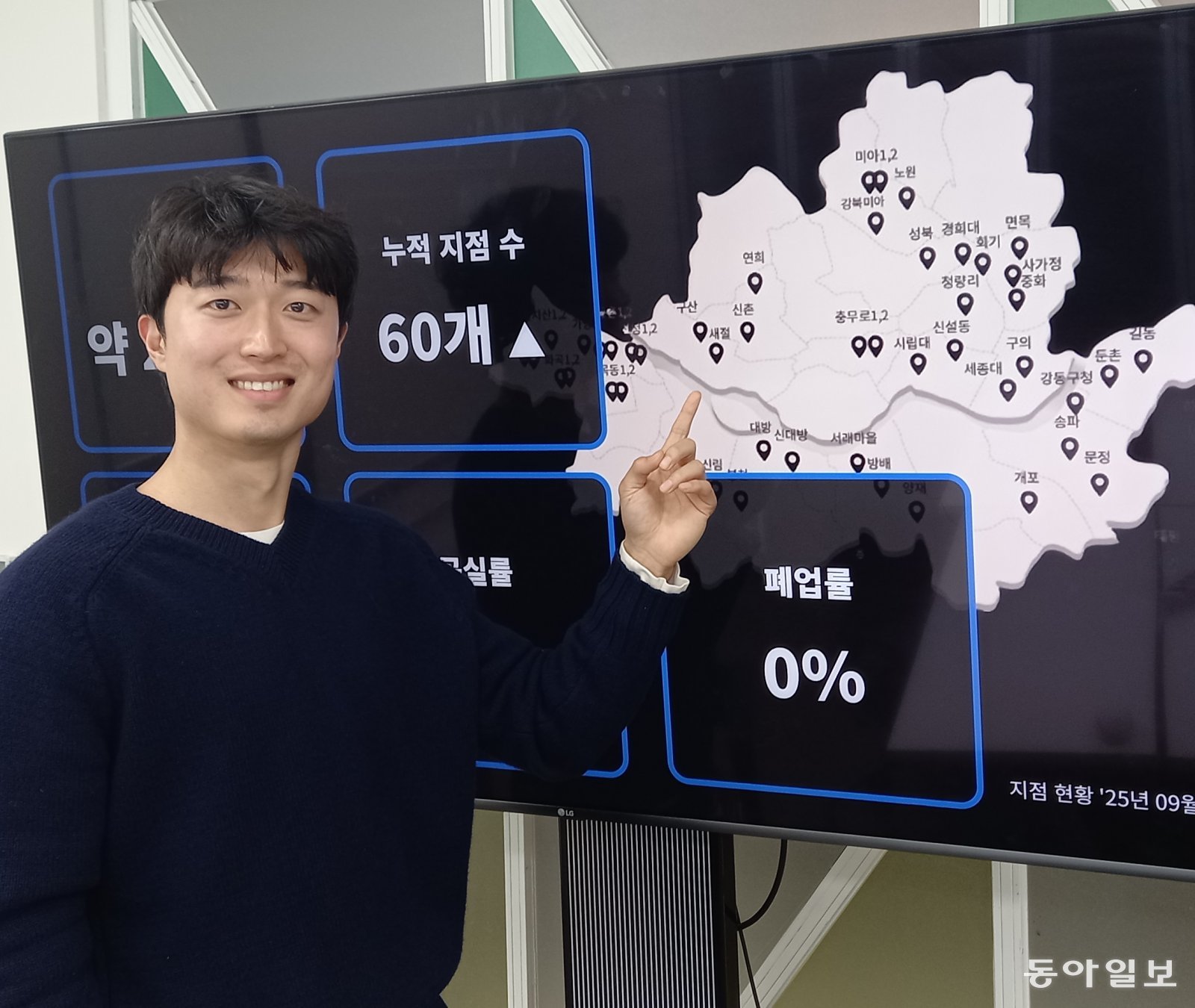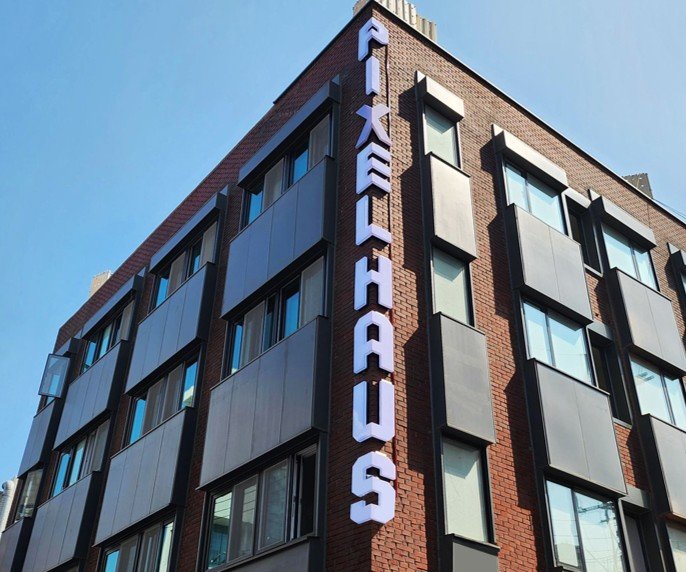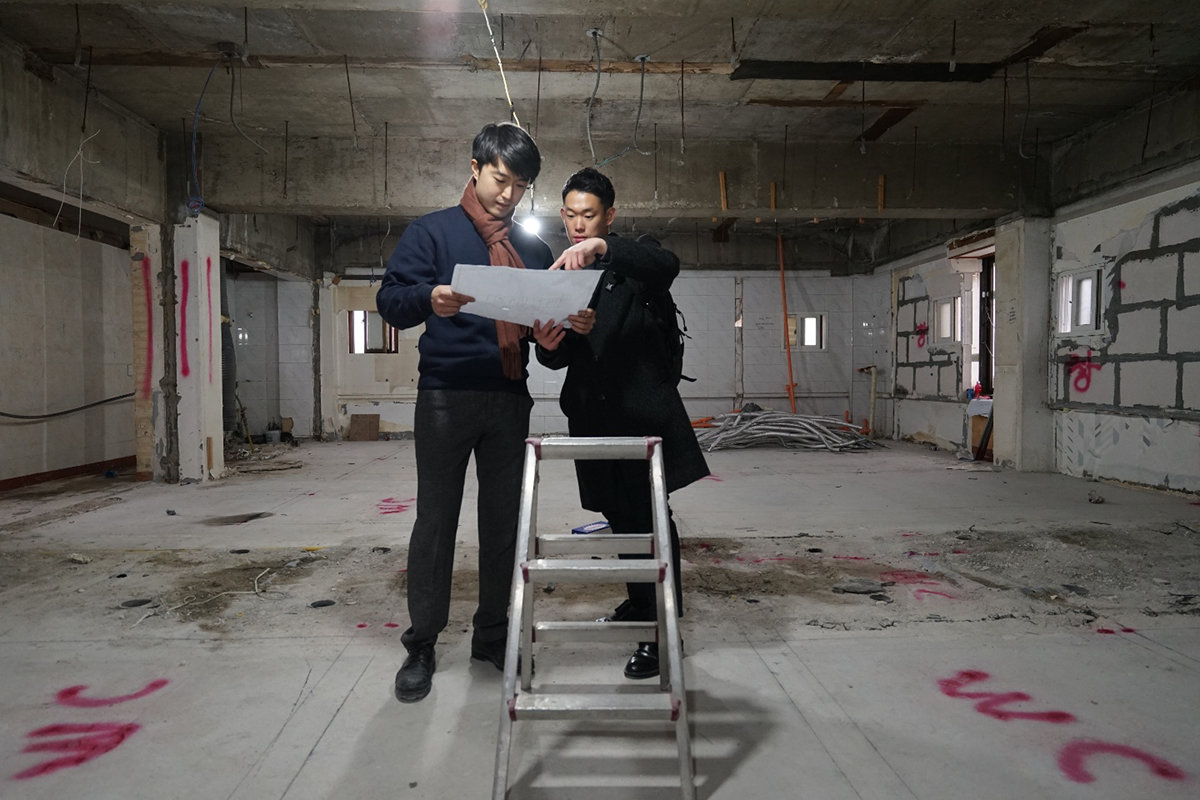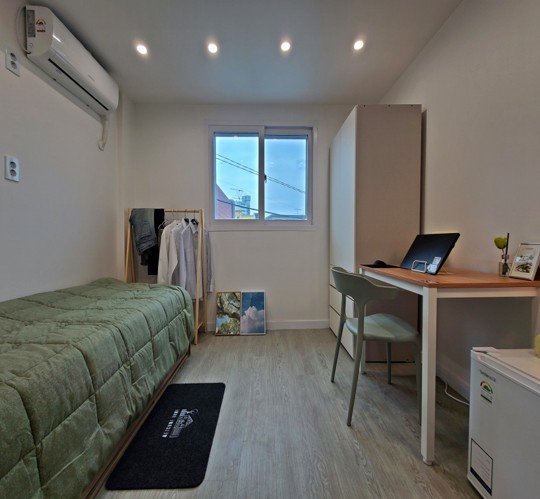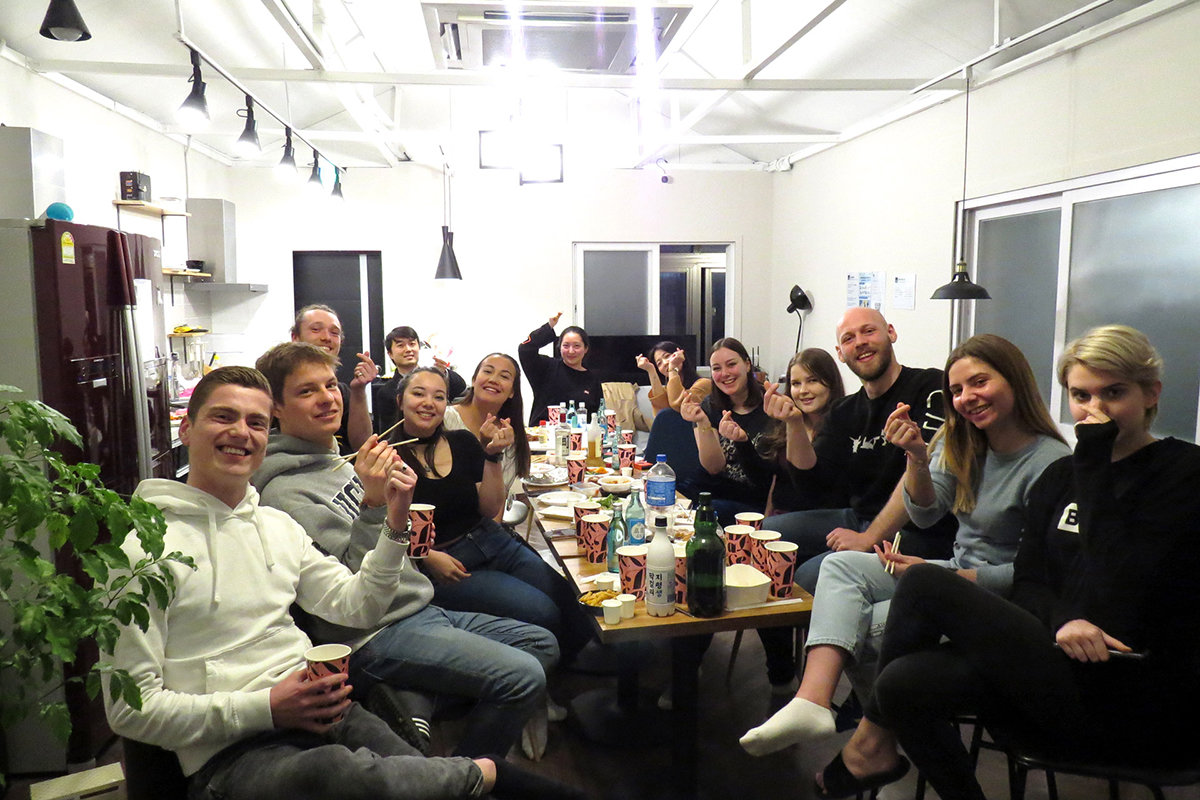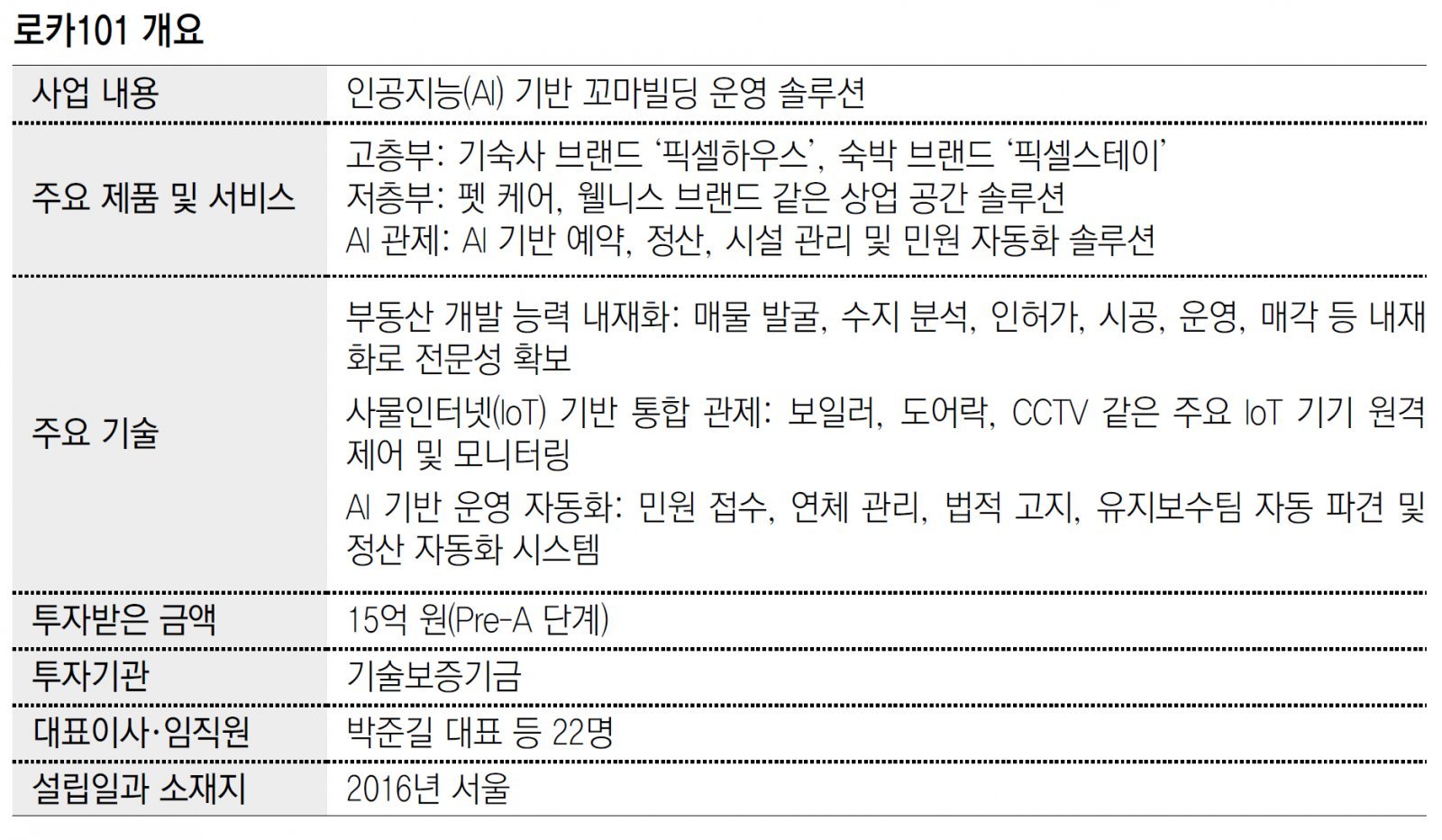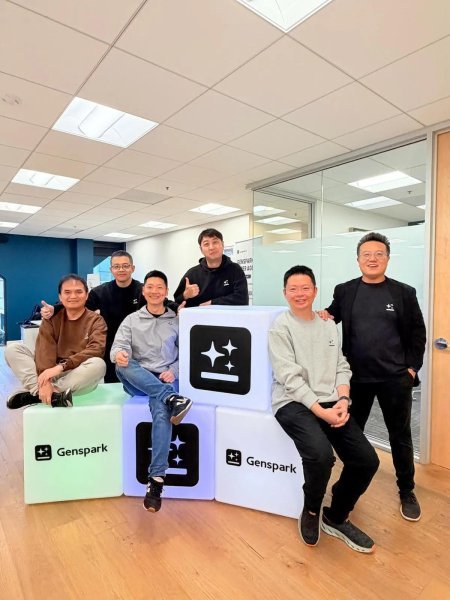
Startup
1991-born Raises KRW 20 Billion, Builds 60 Dorms
Dong-A Ilbo |
Updated 2025.10.25
Transforming Old Commercial Buildings into Single-Person Housing: Roca101
Inspired by Inconveniences Experienced During UK Studies… Converting Stores into Dormitories for Foreigners
Shifted Focus to Single-Person Households Due to COVID-19… Aiming for Affordable Housing Solutions for Youth
Monthly Rent Including Utilities and Breakfast in the KRW 700,000 Range… One-Month Contracts Available - 30% of Tenants are Foreigners
Inspired by Inconveniences Experienced During UK Studies… Converting Stores into Dormitories for Foreigners
Shifted Focus to Single-Person Households Due to COVID-19… Aiming for Affordable Housing Solutions for Youth
Monthly Rent Including Utilities and Breakfast in the KRW 700,000 Range… One-Month Contracts Available - 30% of Tenants are Foreigners
CEO Park Jun-gil of Loca101 explains the features of a dormitory, which shares kitchens and laundry rooms but is cheaper than an officetel, while looking at a map indicating the locations of single-person dormitories at his office in Gangnam-gu, Seoul, on the 21st. Reporter Heo Jin-seok jameshur@donga.com
In February 2020, a young entrepreneur rented a floor of a shabby commercial building in Chungmuro, Jung-gu, Seoul, with KRW 400 million from personal funds and business loans, and transformed it into a dormitory-style living space for foreign residents in Korea. This dormitory-style living space expanded to 60 locations over the next five years. This is the entrepreneurial journey of Park Jun-gil, CEO of Loca101 (34).Exterior of Loca101's single-person dormitory brand Pixel House. Provided by Loca101
The single-person dormitory brand 'Pixel House,' founded by CEO Park, is divided into directly operated and franchised locations, with none having closed down so far. Park, who aims to create homes easily accessible and comfortable for foreigners and young professionals, stated, "We are still in the very early stages in terms of numbers," adding, "We need enough units to create a city with automated services for heating, cooling, maintenance, utility payments, and rent to say we have improved residential services."● The Seed of Entrepreneurship Encountered in London
After completing his first year in the Department of Biomedical Engineering at Hanyang University, he went to study in the UK in 2011. He said, "It was very difficult to find a house remotely when going to the UK and returning to Korea a year later. That experience planted the seed for entrepreneurship."
Among the friends he made while studying in the UK, some came to Korea to study, and they also expressed difficulties in finding housing as foreigners in Korea. Park said, "Foreign friends often found it challenging to obtain information about housing due to language barriers, had difficulty setting flexible rental periods due to long or rigid contract terms, and were burdened by high deposits."
Upon returning to Korea, he started an entrepreneurship club at Hanyang University. He perceived these inconveniences as a kind of social entry barrier for foreigners and anticipated business potential in resolving them. It was also a time when Airbnb was gaining global attention. Meeting Park at his office in Gangnam-gu, Seoul, on the 21st, he recalled, "I judged that the real estate market is a large economic sector with much room for innovation."
● COVID-19 Strikes Right After Opening… Enduring as a One-Person Company
CEO Park Jun-gil (left) meticulously inspects the construction site at a commercial building where Pixel House will be established. Provided by Loca101
In October 2016, he established a corporation, starting as a real estate brokerage platform tailored for foreigners in Korea. Despite providing information in Korean, English, and Chinese and developing a chatbot, it did not generate profit. He said, "Foreigners were frustrated with the high deposits, and cultural differences like separate utility payments and waste separation led to a flood of complaints that needed handling." As the number of employees increased but contracts did not, a change in direction was urgent.He found a breakthrough in goshiwons. Goshiwons, being multi-residential facilities and non-housing, had no property tax or parking issues, and he discovered they could be legally converted into residential spaces by renting commercial spaces cheaply. Park said, "I thought it could be made like dormitories in the US and UK." This led to the opening of the first foreign dormitory in Chungmuro.
However, the COVID-19 pandemic struck in February 2020, right after the first location opened. He recalled, "With foreigners not coming, the company was on the brink of disappearing." He endured as a one-person company, handling cleaning and maintenance tasks alone and sleeping in the dormitory. Naturally, the customer base shifted from foreigners to young domestic single-person households. The Pixel House (dormitory) brand was born at this time. He quickly abandoned marketing to foreigners and strengthened the identity of providing reasonable housing solutions for young people. In line with social distancing, he swiftly introduced a non-face-to-face online move-in and contract system.
In 2021, he opened the second location and expanded through a franchise model. Cumulatively, there were 4 locations in the same year, 15 in 2022, 33 in 2023, 50 in 2024, and 60 this year. In total, there are 1,108 rooms. This was achieved by raising KRW 20 billion from individuals. As sales increased, so did the number of employees, with 22 people now working together.
● Transforming Commercial Buildings and Motels into Single-Person Dormitories
Park's strategy is clear: 'Find undervalued spaces, remodel them economically with in-house capabilities, and rent them at reasonable prices.' With this strategy, he discovered long-vacant commercial buildings, neighborhood living facilities, and motels on the verge of closure, transforming them into spaces where young people want to live.
Inside Pixel House. The laundry room and kitchen are shared. Provided by Loca101
Bedrooms and bathrooms are fully equipped for one person, while laundry rooms and kitchens are shared. The deposit is typically KRW 200,000, about 2% of the usual officetel deposit, and the monthly rent, including management fees, utilities, and a simple breakfast, is maintained in the KRW 700,000 range. Park stated, "The strategy is to charge less than the average monthly rent for a studio in Seoul, which is KRW 800,000, even when including management fees." Contracts can be made for as short as one month, which is also an advantage. The average residence period is 4-5 months, with foreigners making up about 30% of the residents. Contracts can be made directly online from abroad.To reduce costs, core functions were internalized. Brokerage, licensing, design, construction, and operation are all handled directly. Park said, "If outsourced, a month could pass without progress if communication between the brokerage firm and architectural design firm is poor," adding, "We eliminated inefficiencies like paying rent during this time and removed expenses for commissions." He continued, "With a direct construction team with 20 years of experience, standardized design drawings, and a verified supply chain for materials, we reduced construction costs by over 30%."
In 2022, it was designated as a preliminary social enterprise by the Seoul Metropolitan Government, and in December 2023, it attracted an investment of KRW 1.5 billion from the Korea Technology Finance Corporation. The headquarters' revenue, consisting of consulting fees, construction costs, and directly operated dormitories, is approximately KRW 5 billion as of 2024.
● AI to Manage Dormitories and Eventually Cities
Early foreign users of Pixel House gathering for a party. Provided by Loca101
Loca101 is developing an AI-based small building management solution, 'PXZ AI,' for managing dormitory-style living spaces. This is because building owners or franchisees who lease spaces often entrust operations to Loca101. Park explained, "AI responds to complaints, remotely controls boilers, door locks, and CCTV, and suggests optimized prices based on the surrounding rental market conditions to maximize profits," adding, "In the demonstration process, it was found that energy costs per location could be saved by an average of KRW 4 million annually."Loca101 aims to have 100 locations nationwide next year. In addition to Pixel House, it is test-operating to expand into Pixel Stay (accommodation) and Pixel Pet (pet care). There are also plans to create a blind fund in collaboration with private equity and asset management firms to develop entire small buildings.
The risk factor he considers is that profitability may decrease as the scale grows. He is contemplating ways to diversify revenue by supporting cost reduction through AI development and expanding into pet accommodation businesses.
Park stated, "We aim to create an offline solution that satisfies investors and users and ultimately makes cities healthier," adding, "We want to become the standard for efficiently and transparently operating small privately-owned buildings."
Heo Jin-seok
AI-translated with ChatGPT. Provided as is; original Korean text prevails.
ⓒ dongA.com. All rights reserved. Reproduction, redistribution, or use for AI training prohibited.
Popular News







